MRI
Latest

Facebook's AI can generate MRI images in minutes instead of an hour
The network, dubbed fastMRI, shortens the scanning time because it only requires a quarter as much data to resolve the image. But rather than wait for k-space to fill up, fastMRI only needs 25 percent of the data that traditional MRI machines would require to generate those same images (below).
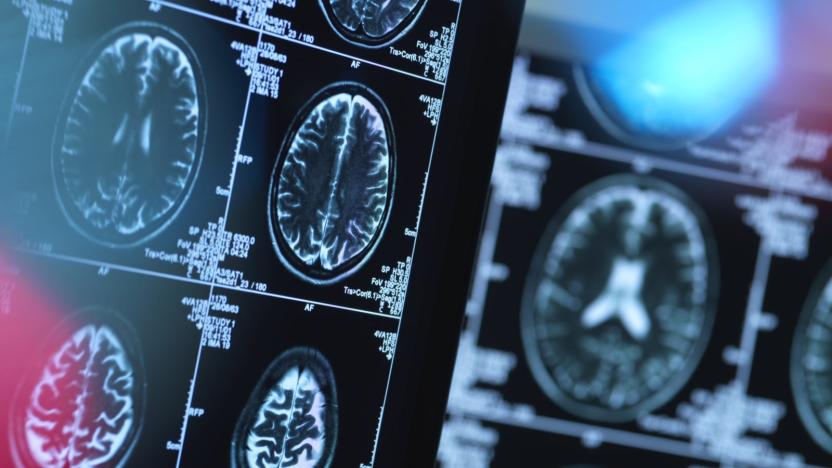
IBM uses AI to predict progress of Huntington's disease symptoms
IBM is using its AI-based health prediction skills to help tackle the challenge of Huntington's disease. The tech firm has teamed up with CHDI Foundation on an artificial intelligence model that can predict when patients will experience Huntington's symptoms and, crucially, determine how rapidly those symptoms will progress. The team used MRI brain scans to train the AI, using signals from white matter (relatively untapped in brain studies) to help the system gauge how cognitive and motor performance will change over time.

MIT’s algorithm could improve imaging techniques used during pregnancy
The placenta plays a critical role in pregnancy: connecting the fetus to the maternal blood system. But assessing placental health is difficult because modern imaging techniques provide limited information. Researchers from MIT's Computer Science and Artificial Intelligence Lab (CSAIL) think they might be able to change that using a volumetric mesh-based algorithm.
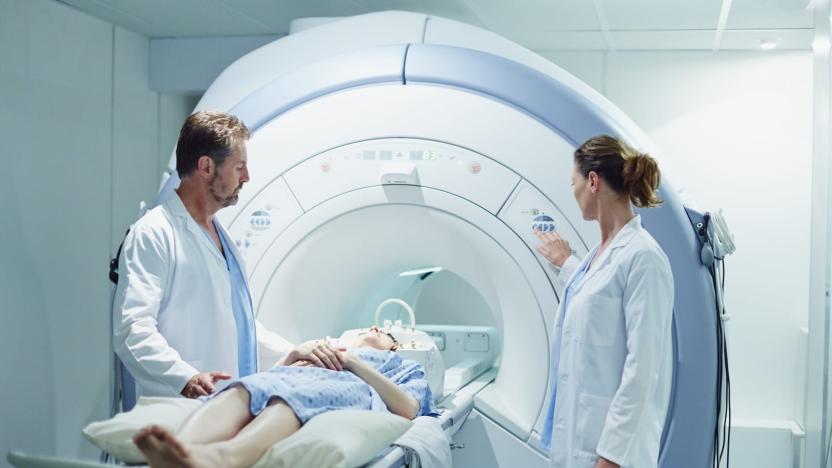
Wisconsin firms hope to make radioactive isotopes for nuclear medicine (updated)
Certain cardiac stress tests and other nuclear medicine diagnostics depend on molybdenum-99, or Mo-99, a radioactive isotope that decays into the diagnostic imaging agent technetium 99m, or Tc-99m. The latter is used in more than 40 million medical imaging procedures each year, but Mo-99 is costly and difficult to make. Now, two Wisconsin firms say they've found a more efficient way to make the critical material.

Study finds changes in Cuban diplomats' brains, but no sign of attack
Scientists are still unsure of why a group of US diplomats in Cuba experienced mysterious neurological symptoms, but they're still looking for answers. A new study published today in JAMA by the University of Pennsylvania reveals that brain changes were found in US government officials who were stationed in Havana. But there's still no proof to the theory that the diplomats were attacked by a sonic weapon.

AI could study your brain to help teachers improve their courses
Teachers don't always know how well their methods work. They can ask questions and hand out tests, of course, but it's not always clear who's at fault if the message doesn't get through. AI might do the trick before long, though. Dartmouth College researchers have produced a machine learning algorithm that measures activity across your brain to determine how well you understand a given concept.

Researchers trick radiologists with malware-created cancer nodes
Security researchers in Israel have developed malware that can add realistic-looking but entirely fake growths to CT and MRI scans or hide real cancerous nodules that would be detected by the medical imagining equipment. The software, designed by experts at the Ben Gurion University Cyber Security Research Center, was created to highlight the lax security protecting diagnostic tools and hospital networks that handle sensitive information.
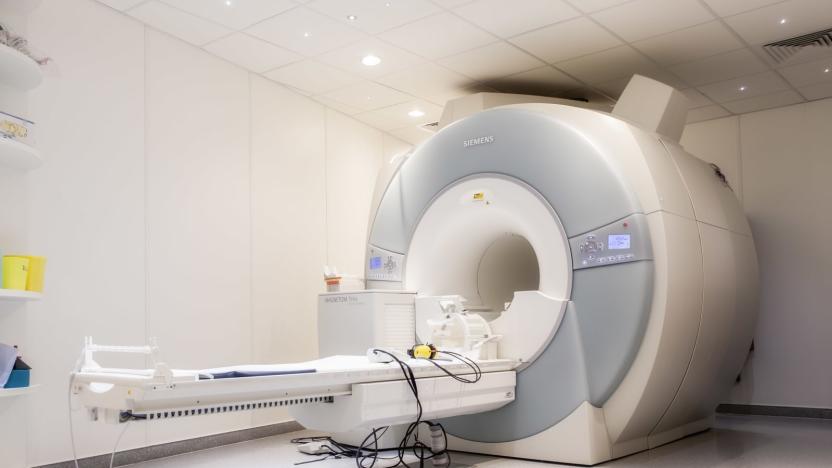
Facebook and NYU researchers aim to use AI to speed up MRI scans
Facebook is teaming up with researchers at the NYU School of Medicine's Department of Radiology in order to make MRIs more accessible. Scientists with the Facebook Artificial Intelligence Research (FAIR) group and NYU note that getting an MRI scan can take up a fair amount of time, sometimes over an hour, and for people who have a hard time laying still for that period of time -- including children, those who are claustrophobic or individuals with conditions that make it painful to do so -- the length of a typical MRI scan poses a problem. So the researchers are turning to AI.

Speedy AI image analysis could help doctors during surgery
Right now, comparing 3D medical scans is a pain -- it can take two hours or more to see what's changed. And that spells trouble for surgeons, who may have to bring patients back to the operating room if a tumor removal wasn't a complete success. Thankfully, AI technology may eliminate that hassle. An MIT-led research team has crafted a machine learning algorithm that can analyze 3D scans up to 1,000 times faster than before, making it possible to study changes almost in real time -- less than a second on a PC with a fast graphics card.
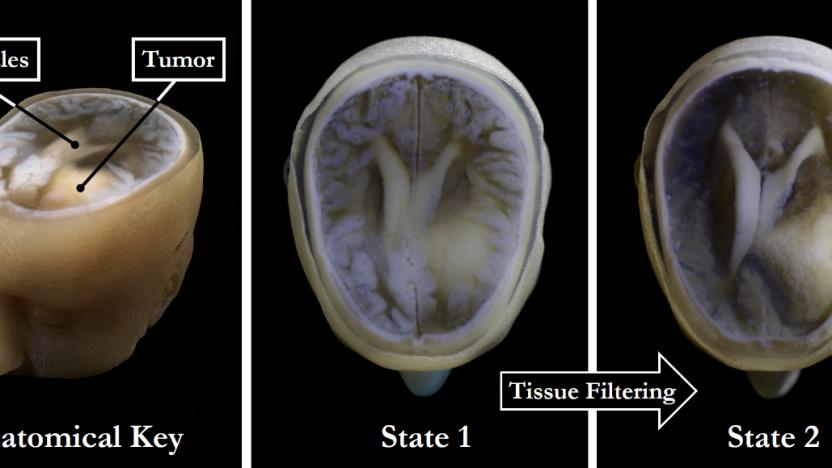
You'll soon be able to get a 3D printed model of your brain
There are almost limitless possibilities when it comes to 3D printing. Design your own color-changing jewelry? Fine. Fabricate your own drugs? No problem. Print an entire house in under 24 hours? Sure! Now, researchers have come up with a fast and easy way to print palm-sized models of individual human brains, presumably in a bid to advance scientific endeavours, but also because, well, that's pretty neat.
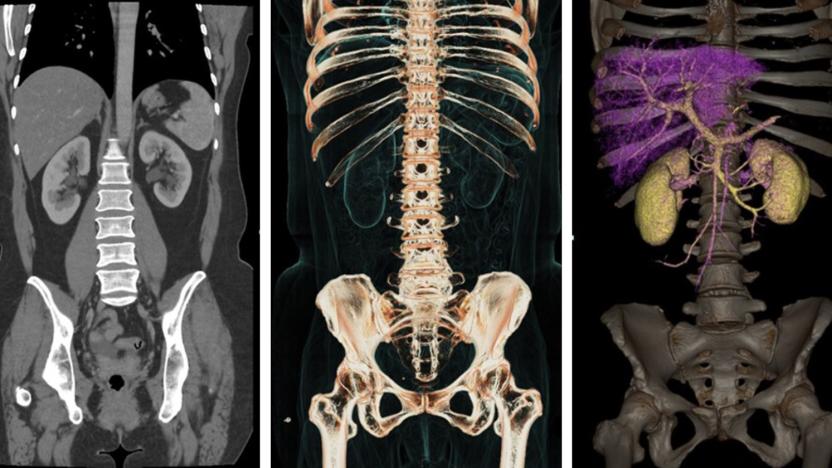
NVIDIA's AI will help GE speed up medical image processing
Deep learning tech is making itself at home in hospitals by helping radiologists examine medical scans for just a buck per image. Now, GE Healthcare is bringing that AI tech directly to the scanners, thanks to partnerships with NVIDIA and Intel. It announced that it will update 500,000 of its medical devices around the world with NVIDIA AI tech, most notably its Revolution Frontier CT scanner (below). The tech "is expected to deliver better clinical outcomes in liver lesion detection and kidney lesion characterization because of its speed," GE wrote in a press release.

An algorithm could identify suicidal feelings based on brain scans
It's difficult to identify whether or not someone is feeling suicidal by asking. According to studies, roughly 80 percent of those who go through with the act denied feeling suicidal the last time they spoke to a mental health care expert. However, AI-related technology -- which is also being applied to things like spotting cancerous cells -- might offer a way to identify these thoughts and prompt a timely intervention. Researchers have developed a machine learning algorithm that identifies suicidal tendencies based on activity in specific brain regions.
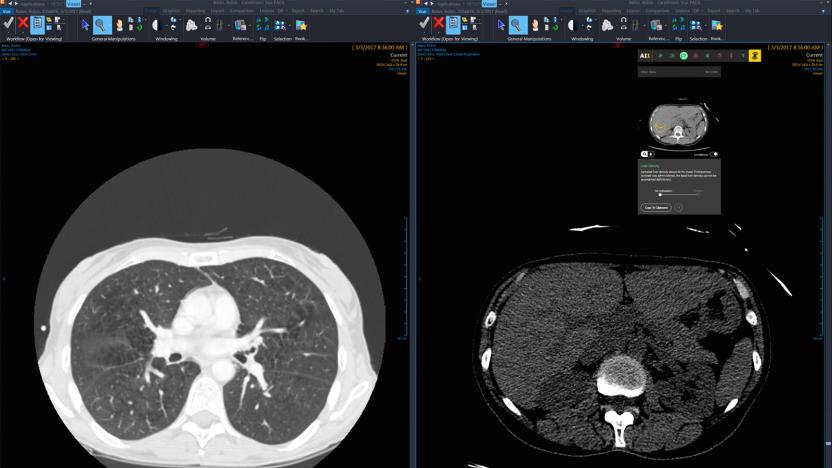
For a dollar, an AI will examine your medical scan
A company called Zebra Medical Vision (Zebra-Med) has unveiled a new service called Zebra AI1 that uses algorithms to examine your medical scans for a dollar each. The deep learning engine can examine CT, MRI and other scans and automatically detect lung, liver, heart and bone diseases. New capabilities like lung and breast cancer, brain trauma, hypertension and others are "constantly being released," the company says. The results are then passed on to radiologists, saving them time in making a diagnosis or requesting further tests.

AI can detect Alzheimer's 10 years before symptoms show up
Various researchers around the globe are developing ways to detect Alzheimer's as early as possible. After all, early detection gives people the power seek treatment that can slow down the condition's effects, as well as enough time to get their legal and financial affairs in order. Some decided to focus on blood and cerebrospinal fluid tests, while others are developing gadgets that can look for early signs. A team of researchers from the University of Bari in Italy, however, believe the answer lies in artificial intelligence. They developed an algorithm that can spot tiny structural changes in the brain caused by the disease a decade before symptoms even appear.

FDA approves first MRI machine for premature babies
Premature babies are some of the most vulnerable patients in a hospital, and they also need some of the most dedicated care. Treating these tiny patients in the neonatal unit, or NICU, can be a challenge, especially when it comes to magnetic resonance imaging (MRIs). Taking a baby through the hospital to an MRI machine and exposing them to germs is not a decision a doctor takes lightly, and that's why this new announcement is a welcome one: The FDA has cleared a new MRI machine for exclusive use in neonatal units.

IBM's AI can predict schizophrenia by looking at the brain's blood flow
Schizophrenia is not a particularly common mental health disorder in America, affecting just 1.2 percent of the population (around 3.2 million people), but its effects can be debilitating. However, pioneering research conducted by IBM and the University of Alberta could soon help doctors diagnose the onset of the disease and the severity of its symptoms using a simple MRI scan and a neural network built to look at blood flow within the brain.

AI can predict if you'll die soon by examining your organs
When not stealing blue collar jobs, robots are becoming Dr. House, diagnosing maladies like breast and skin cancer with aplomb. Scientists at the University of Adelaide have pushed it to a morbid new level, however, with an AI system that can tell if you're going to die. By analyzing CT scans from 48 patients, the deep learning algorithms could predict whether they'd die within five years with 69 percent accuracy -- "broadly similar" to scores from human diagnosticians, the paper says.
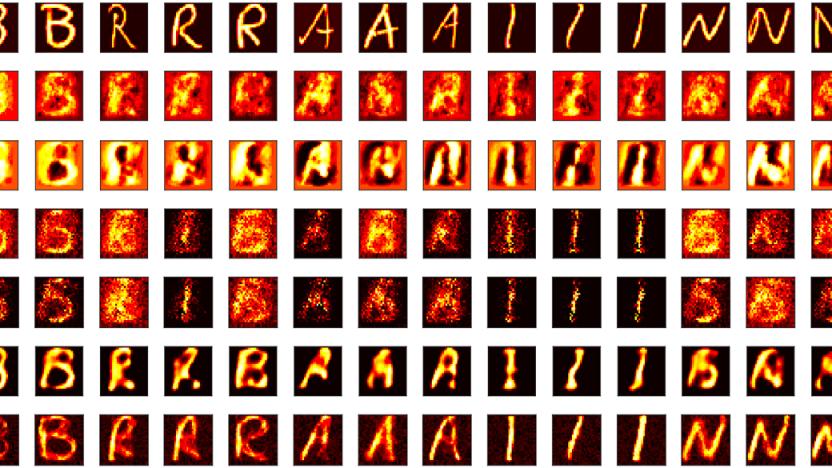
Neural network learns to reproduce what your brain sees
Scientists dream of recreating mental images through brain scans, but current techniques produce results that are... fuzzy, to put it mildly. A trio of Chinese researchers might just solve that. They've developed neural network algorithms that do a much better job of reproducing images taken from functional MRI scans. The team trains its network to recreate images by feeding it the visual cortex scans of someone looking at a picture and asking the network to recreate the original image based on that data. After enough practice, it's off to the races -- the system knows how to correlate voxels (3D pixels) in scans so that it can generate accurate, noise-free images without having to see the original.

UK hospital uses VR to reassure children before MRI scans
Entering a magnetic resonance imaging (MRI) machine can be a nerve-wracking experience. You're trapped in a tight space and have to lie perfectly still as loud noises -- produced by the current in the scanner coils -- pepper your eardrums. To help patients, and in particular children, the Kings College Hospital in London has turned to VR. MRI physicist Jonathan Ashmore and technologist Jerome Di Pietro have produced an app that contains a 360-degree video. Slip on a Google Cardboard and you'll see what happens on the day, from arrival to stepping inside the scanner.
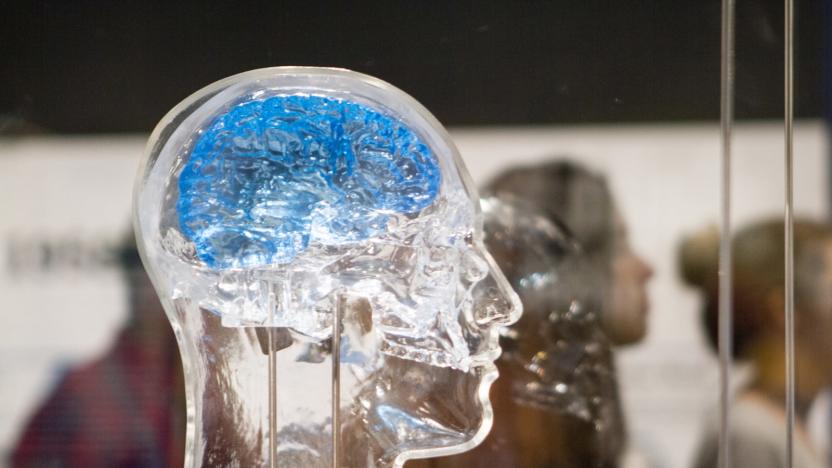
Brain mapping could lead to better Parkinson's treatments
When you repair electronics, you frequently test individual parts to see how they affect the whole. Why not try that with the brain? Stanford is doing just that. It developed a technique that fires specific kinds of neurons to map the brain and identify problems caused by Parkinson's and other diseases. The approach first uses optogenetics to make neurons activate in response to light, and follows up with a functional MRI scan to look for the increased blood flow that indicates activity in other brain regions. A computational analysis maps that particular neural circuit and helps determine its role.










